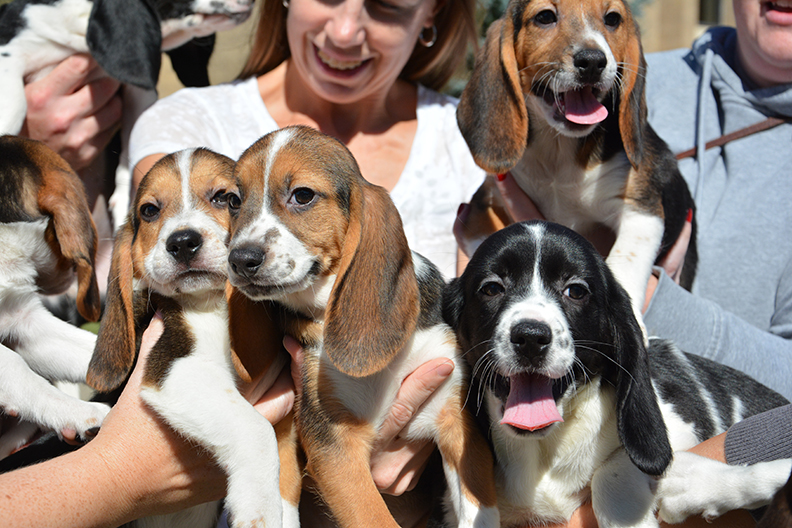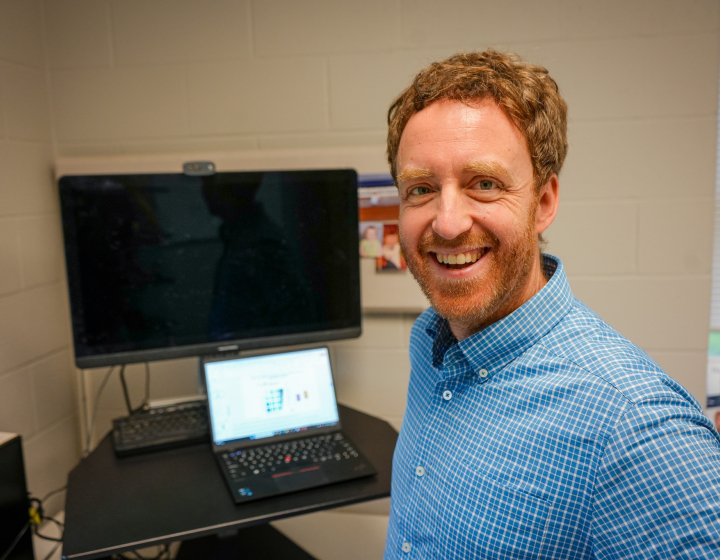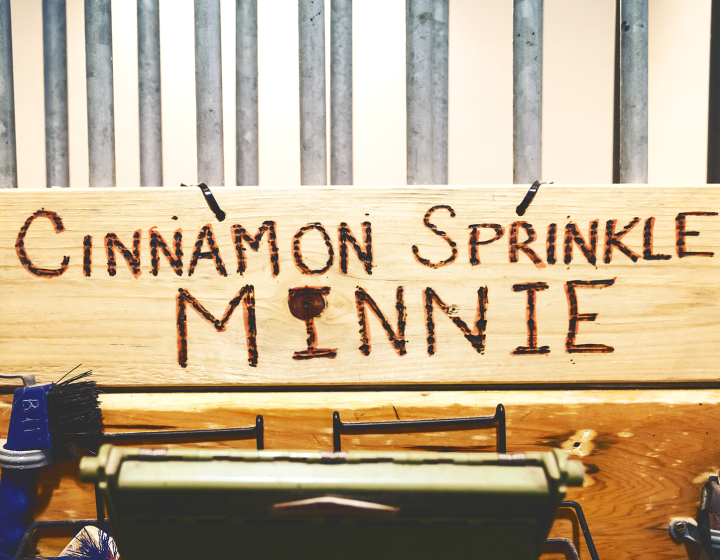First "test tube" puppies born at CVM/Baker
The breakthrough, described in a study published online Dec. 9 in the journal Public Library of Science ONE, opens the door for preserving endangered canid species using assisted reproduction techniques. It could also enable researchers to eradicate heritable diseases in dogs and facilitate the study of genetic diseases in dogs and humans, which share many of the same or similar illnesses.
Researchers at the Cornell laboratory transferred 19 embryos to a host female dog, who gave birth last spring to seven healthy puppies. Genetic testing shows that two are from a beagle mother and a cocker spaniel father, and five from two pairings of beagle fathers and mothers.
“Since the mid-1970s, people have been trying to do [IVF] in a dog and have been unsuccessful,” said co-author Alex Travis, associate professor of reproductive biology at the Baker Institute for Animal Health in Cornell’s College of Veterinary Medicine.
The paper’s first author, Jennifer Nagashima, was a graduate student whose participation in the project was funded by the Smithsonian Conservation Biology Institute (SCBI) and Cornell’s Atkinson Center for a Sustainable Future. The National Institutes of Health and the Baker Institute provided funding for the project itself.
Laboratories perform successful IVF with other mammals—including humans—by retrieving mature eggs and sperm and combining them in an artificial environment to produce embryos. The embryos are transferred to a host female at the right time in her reproductive cycle.
Past attempts at canine IVF failed because a female dog’s reproductive cycle differs from that of other mammals. Canine eggs retrieved at the same stage of cell maturation as other animals failed to fertilize. By applying the oocyte biology expertise of SCBI’s Nucharin Songsasen, a research biologist and co-author, the team found that if they left the egg in the oviduct one extra day, the eggs reached the stage where fertilization was most likely to occur.
In addition, the female canine tract plays a role in preparing sperm for fertilization, so researchers had to simulate those conditions in the lab. Building on Travis’s earlier work on sperm physiology, the team found that sperm could be artificially prepared by adding magnesium to the cell culture.
“We made those two changes, and now we achieve success in fertilization rates at 80 to 90 percent,” Travis said.
The final challenge arises because female dogs can only become pregnant once or twice a year. This means embryos must be created ahead of time and preserved until the host female is at the right point in her cycle. The team solved this problem by using the technique, developed by Travis’s lab in partnership with SCBI, which produced Klondike, the first puppy born from a frozen embryo in the Western Hemisphere.
The birth of IVF puppies has wide implications for wildlife conservation. “We can freeze and bank sperm, and use it for artificial insemination,” Travis said. “We can also freeze oocytes, but in the absence of in vitro fertilization, we couldn’t use them. Now we can use this technique to conserve the genetics of endangered species.” The method can also be used to preserve rare breeds of show and working dogs.
In addition, embryonic dogs now offer a “powerful tool for understanding the genetic basis of diseases” in canines and humans, Travis said. Dogs share more than 350 similar heritable disorders and traits with humans, almost twice the number as any other species.
A successful IVF process for canines may one day enable researchers to remove genetic diseases and traits in an embryo, ridding dogs of heritable diseases such as lymphoma, a cancer that is more prevalent in breeds like Golden Retrievers. “With a combination of gene editing techniques and IVF, we can potentially prevent genetic disease before it starts,” Travis said.
Visit our FAQ to find out more about the puppies and this project.
Photos, videos and a copy of the study may be downloaded from https://cornell.box.com/IVFpuppies. Cornell University has television and ISDN studios available for media interviews.
Contact
Merry Buckley
Baker Institute for Animal Health at Cornel
mrb46@cornell.edu
O: (607) 256-5645
C: (607) 592-1514
Claudia Wheatley
Cornell College of Veterinary Medicine
(607) 216-7724
claudiawheatley@cornell.edu




